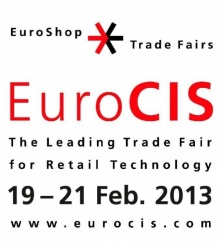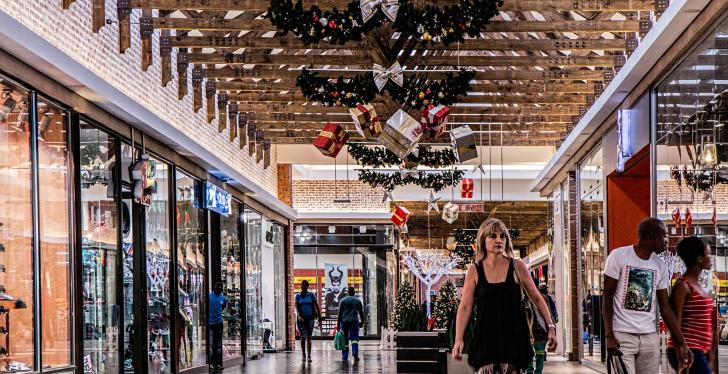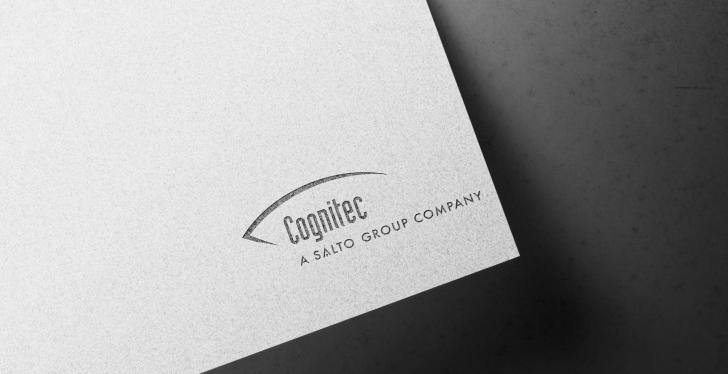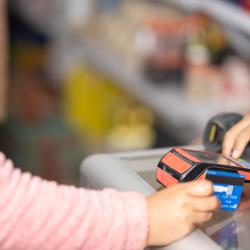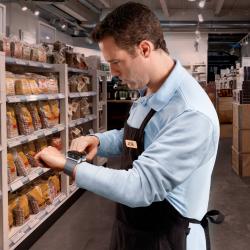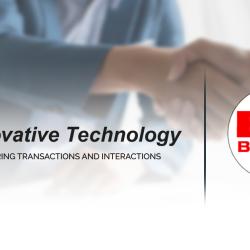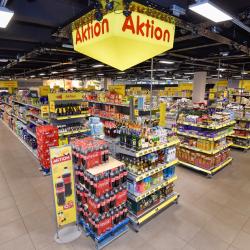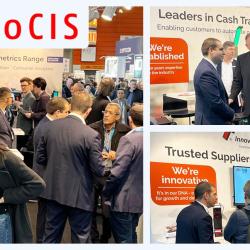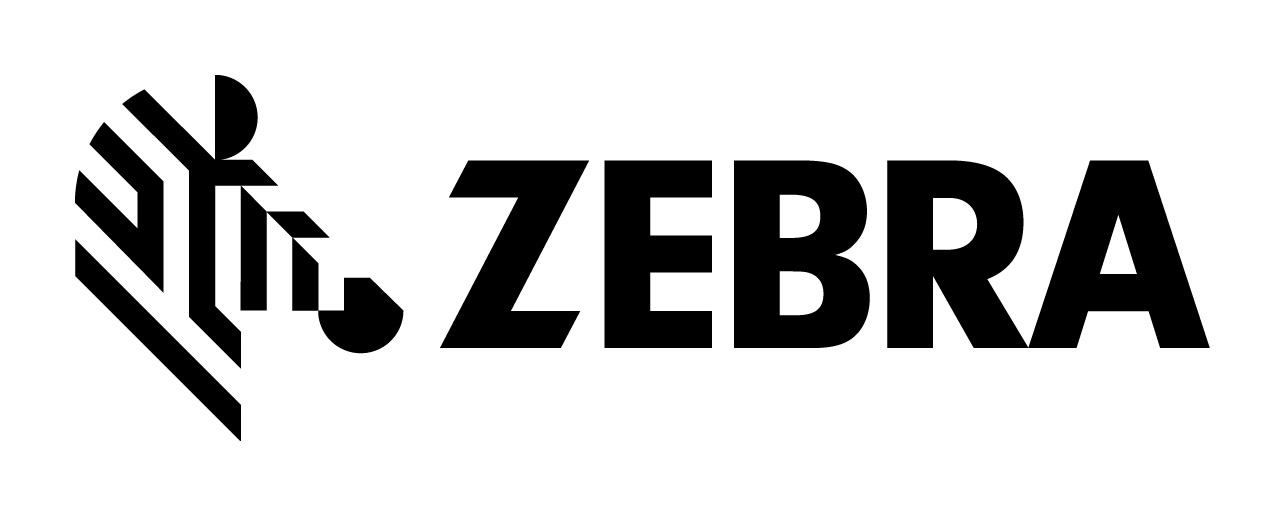Company News • 21.11.2012
EuroCIS 2013: High-tech tools against theft and embezzlement
Worldwide retail shrinkage of USD 119 billion per year
According to a current survey of the British Centre for Retail Research (CRR), the worldwide shrinkage suffered by retailers between July 2010 and June 2011 amounted to USD 119 billion or approximately 1.45% of retail sales. In a year-on-year comparison, this means that global shrinkage increased by USD 12 billion or 6.6%. More than USD 51 billion or 43% of total shrinkage are attributable to shoplifting customers including both individual perpetrators and organised gangs.
The CCR study on “The Global Retail Theft Barometer” is based on a survey of almost 1,200 retail companies in 43 countries representing a total of approx. 250,000 supermarkets and stores. The worldwide averages calculated by the CCR hide significant, country-specific differences. India (2.38 % of retail sales), Russia (1.74 %) and Morocco (1.72 %) experience the highest shrinkage rates, for example. In contrast, Taiwan (0.91 %), Hong Kong (0.95 %) as well as Japan, Austria and Switzerland (with 1.04 % each) register the lowest rates.
The German retail sector also comes out below average with a shrinkage rate of 1.2%. Valued at retail sales prices, the inventory discrepancies of German retailers nonetheless represent an aggregate total of approximately EUR 3.8 billion annually, as the Cologne EHI Retail Institute notes in its survey for 2011.
Increasing gang crime and propensity to use violence
A growing problem for retail companies is organised crime - theft by organized gangs and goods stolen to order are typical offences committed by groups of professional perpetrators with every incident causing significant losses by value. This is true for almost all countries, but especially so for the Americas: in 2011, almost 60% of all retail businesses in North America and more than 50% of all retailers in Latin America registered an increase of the shrinkage caused by rising organised crime. In Europe, approximately 42% of retail businesses complain about a significant rise in raids committed by organised gangs.
Next to the theft committed by “customers“, the employees are another significant source of shrinkage in retailing. On a global scale, the shrinkage attributable to dishonest employees is said to amount to a little less than USD 42 billion (35% of total shrinkage) the remaining shrinkage is due to internal operating errors of retailers and to theft or organisational shortcomings of suppliers and logistics service providers.
Focus on valuable articles
Thieves pay increasing attention to the fact that their thieving is really worth their while. This is evident from the fact that the amount of damage per offence continues to increase. While the average value of the stolen goods amounts to USD 202.16 for each theft committed by dishonest customers, the retail sector loses an average of USD 1,697.23 for each theft committed by an employee, i.e. more than eight times the amount of a customer offence.
Higher prevention budgets
Given these figures, companies increase their investment budgets for protective measures. In 2011, the retail sector‘s total spending on loss prevention increased from USD 26.823 billion to USD 28.3 8 billion – a figure corresponding to a 0.35% share of total retail sales.
EuroCIS 2013: State-of-the-art solutions for prevention and security
As the retail sector increases its expenditure in security and theft prevention, the solutions offered at EuroCIS 2013 will be received with a lot of interest. The European No. 1 specialist tradeshow for IT in the retail sector will present the most recent developments in security engineering from 19 to 21 February 2013 - from mechanical and electronic article surveillance (EAS) or access controls and video surveillance to automatic cash handling systems. Especially larger retail companies focus on holistic or integrated solutions. “Integrated logistics, merchandise management and security systems covering the entire value chain will be increasingly important”, as Frank Horst, Director of Security Research at the EHI Retail Institute, explains.
Quantum leap in camera surveillance
Every company focusses on its own preventive specificities. According to the findings of the Cologne Institute, video technology plays an increasingly important role for retail companies. 86% of the retail companies surveyed by EHI in Germany (primarily food retail chains, drugstores, DIY markets, department stores and furniture stores) rely on open video surveillance of their sales and storage areas.
In this context, they benefit from the explosive technical progress of recent years. At the EuroCIS 2013 tradeshow, the most recent generation of IP installations will be on display. In IP video networks, each camera and each recording device has its own IP address. In contrast to former analogue systems, video data are stored on a network video recorder (NVR) – a server PC, which is capable of accessing several hard disk subsystems. The NVR therefore offers almost unlimited storage space for a large number of video channels. Its management software is a video management system permitting the display and analysis of the live images and stored video data recorded by any camera in the system. And all that with an image resolution of up to 5 megapixels – the all-important strength of IP video compared to analogue systems.
The application has additional advantages in real-time detection and forensic searches - the detection of past events. It is possible, for example, to specifically show only those sales area sections, in which people were present at a certain time. Suspect customers may be tracked over various camera segments, and the video archive may be searched in line with specific parameters. This significantly facilitates the identification and conviction of suspects.
And such cameras may be used for multiple applications over and above the security aspect. “Analysing video recordings may provide important insights into customer behaviour or the effectiveness of display areas, for example“, explains Sona Pauvertova of Axis Communications AB, a solutions provider.
Reducing the cash handling risk
Trade visitors at EuroCIS can also look forward to innovations in the cash handling field. In many countries, cash payments continue to dominate - the EHI has found that cash payment rate in the German retail sector represents 58.4% of total retail sales. This results in an equally high risk of robbery by criminals and the risk of embezzlement by employees. Many retail companies therefore try to automate cash processes both at the checkout and in their back offices. At EuroCIS 2013, companies like Gunnebo Germany, for example, will present systems designed to optimise cash handling. The solutions at the interface between retailers and commercial banks include cash-in and cash-out safes for the safe storage of cash at the checkout and in the back office. They considerably reduce the risk of robberies. And employees have less (or no) hands-on contact to cash and bank notes. “We see a growing demand among retailers for intelligent solutions with a meaningful cost-benefit ratio”, says Wolfgang Brand, Managing Director of the Financial Sector and Distribution Sector units with Gunnebo Deutschland GmbH, a producer.
"Loss Prevention” solutions including an automatic verification of checkout transactions by a special software are specifically intended to combat cash embezzlement at the checkout and by employees. When certain threshold values are exceeded in case of aborted sales slips, discounts, reversals, returns or corrected prices, for example, the management will be informed automatically. In these cases, data may be accessed irrespectively of the current location by iPhone, iPad, Android systems or BlackBerry. “Together with open corporate communications regarding the use of a loss prevention solution, shrinkage due to checkout fraud can be reduced effectively”, confirms Juliane Fenske, Director Marketing at MICROS Retail Deutschland GmbH.
Electronic article surveillance are very popular
One focus of EuroCIS is on security and specifically on anti-shoplifting solutions - ranging from electronic article surveillance (EAS) to special boxes, locked display cases and ultimately to security devices in the form of chains, cables or lines. Such protective measures are not used across all product ranges; they are mostly used for selected items instead. According to a study by the Centre for Retail Research, more than three quarters of all retailers worldwide now use such opportunities to protect their 50 most valuable or most frequently stolen articles. And electronic systems (including source tagging) are used by 44% of all retailers. “EAS is increasingly popular in the retail sector“, says Prof. Joshua Bamfield of CCR.
With 3,400 electronically secured product lines, the North American retail sector deploys the highest number of EAS systems, and more than 700 articles are already equipped with electronic tags at source, i.e. at the production stage. But the share of source-tagged product lines is highest in Europe. 23.4% of all product lines carrying security tags in European stores are already tagged at source.
The technology of EAS systems is very mature and reliable in practice. The detection rates of antenna systems are getting higher, and the tags are getting smaller too. “It therefore is increasingly difficult for thieves to slip tagged goods past the antennas without being noticed“, explains Frank Horst from the EHI Institute. At EuroCIS, companies such as Checkpoint Systems present their portfolio of products and solutions for deployment along the entire supply chain. These products include a new antenna, which reads both RF tags (for article surveillance) and RFID tags (for article tracking) and thus facilitates the migration from RF to RFID.
Speaking of RFID: the technology is more and more interesting for retail companies, and some major retailers have already introduced RFID applications. Thanks to the larger quantities, tags are now produced at lower cost. “We see a highly dynamic development especially in textile retailing – driven by an offer of increasingly reliable and affordable solutions“, reports Klaus Schmid, Vice President Central Europe with Checkpoint Systems. And the focus is not only on security aspects. RFID solutions are also used for inventory control, inventory management, and supply chain optimisation.
EuroCIS 2013 is open to trade visitors daily from Tuesday, 19 February, to Thursday, 21 February, from 10.00 am to 6.00 pm. More information on EuroCIS is available on the Web at www.eurocis.com.

